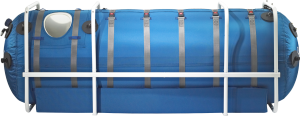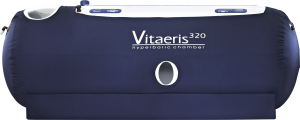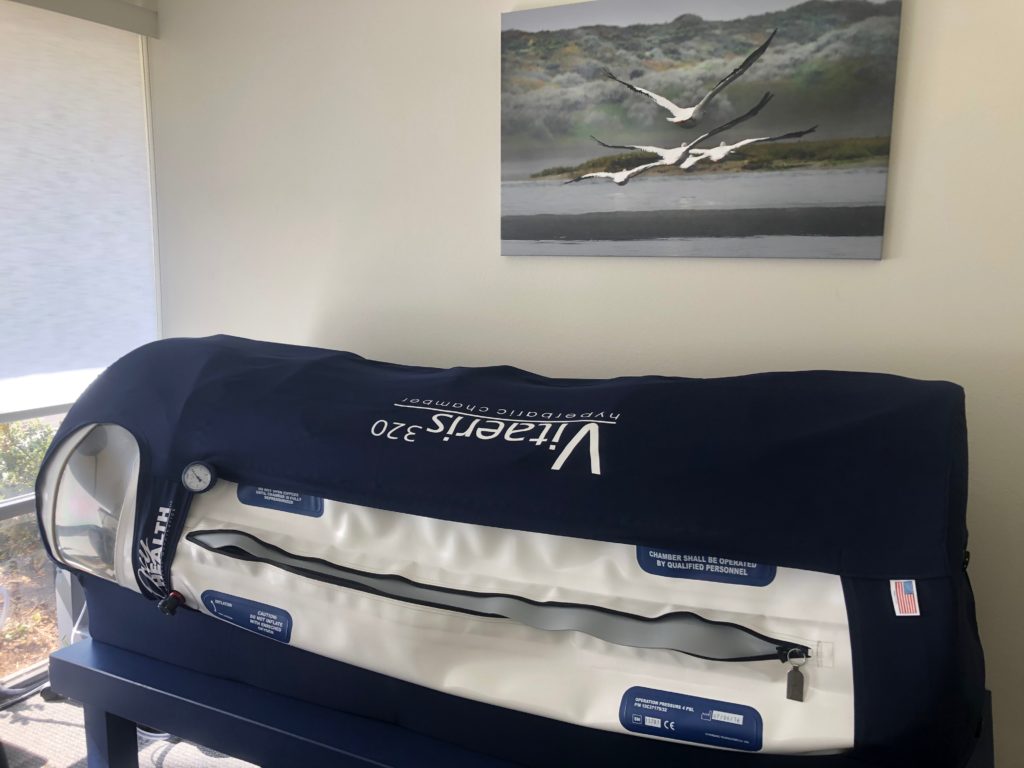Mild Hyperbaric Oxygen Therapy (mHBOT)
Mild Hyperbaric Oxygen Therapy is prescribed by physicians to treat sports injuries, peripheral neuropathy, chronic fatigue syndrome, concussion and other neurological disorders because it reduces inflammation and pain, causes accelerated tissue regeneration and function, improves energy levels and enhances the immune system through delivery of concentrated oxygen levels to tissue.
What is it?
Mild Hyperbaric Oxygen Therapy (mHBOT or Low Pressure Hyperbaric Oxygen Therapy) raises the body’s oxygen levels by placing the patient in a pressurized chamber with a concentrated oxygen supply thereby increasing oxygen levels by 6-7 times the level under normal atmospheric conditions. Many patients seek the treatments for general wellness considerations due to its inflammation reducing capability.
Who is it for?
mHBOT is for anyone suffering from neurological disorders, including:
- Concussion and Traumatic Brain Injury
- Peripheral Neuropathy
- Migraine
- Chronic Fatigue Syndrome
- Chronic Pain/Chronic Regional Pain Syndrome/Fibromyalgia[10]
- Sports Injuries
- Stroke
- Alzheimer’s Disease
- Arthritis

Quamvis mHBOT Chamber
What is it?
Mild Hyperbaric Oxygen Therapy (mHBOT or Low Pressure Hyperbaric Oxygen Therapy) raises the body’s oxygen levels by placing the patient in a pressurized chamber with a concentrated oxygen supply thereby increasing oxygen levels by 6-7 times the level under normal atmospheric conditions. Many patients seek the treatments for general wellness considerations due to its inflammation reducing capability.

Vitaeris mHBOT Chamber
Results
Clinical studies and trials have established the efficacy of mHBOT for Chronic Fatigue Syndrome (CFS)[1], Complex Regional Pain Syndrome (CRPS) [2], Alzheimer’s Disease [3] and Arthritis [4], among others. For arthritis, the authors of a 1995 study on rheumatoid arthritis published in the proceedings of the 11th International Congress on Hyperbaric Medicine concluded that HBOT had an overall effective rate of 91.9% with 23.4% cured, 51.4% having an “obvious effect”, 16.2% improved and only 8.1% no effect. [5]
- To significantly improve the symptoms associated with acute TBI in a 19 year old male ejected from a vehicle at 65 miles per hour using 188 HBOT sessions [6];
- To significantly improve TBI in a U.S. Navy Medical Corpsman who suffered 5 severe head injuries and was discharged from the Navy with a 60% disability rating. After 40 HBOT sessions the patient was markedly recovered and employed full time [7];
- To significantly improve TBI in a 23 year old female when prescribed over 5 years after the date of her vehicular accident [8];
- To markedly improve [in 80 HBOT sessions] the neurological disorders afflicting a 60 year old male more than 2 years following the date of his stroke [9].
Peripheral neuropathy has also been successfully treated at the TheraMind Center of Santa Barbara using mHBOT in combination with Low Level Light Therapy.

Our approach
Individualized patient treatment protocols reflecting each patient’s unique needs are developed after consultation with our physicians. A typical course of mHBOT is 40 sessions over 20 – 40 days. Before each mHBOT session patients are checked for blood pressure and any other contraindications and are fitted with an oxygen mask. Throughout each session, which last approximately 75 minutes, patients wear comfortable clothing without shoes and are observed by our certified technicians.
Historical & Modern Use
Hyperbaric therapy was first used to treat health problems in England as early as 1662! The health benefits of HBOT have been recognized and actively studied in the U.S. since 1928 when Harvard Medical School had an HBOT chamber built for research. Today HBOT and mild HBOT (the difference being the amount of pressure used in the respective chambers) are routinely used in hospitals, private wound centers and private hyperbaric centers.
FDA Approval
Use of mild hyperbaric oxygen therapy (mHBOT at pressures below HBOT levels) has been cleared by the FDA for treatment only for AMS (altitude sickness) but, like its higher pressure “cousin”, HBOT, its benefits and consequent applications flow from the general physiological benefits applicable to hyperbaric therapy generally: reduction of inflammation; reduction of pain; regeneration of tissue and tissue function; improved energy levels; and, enhancement of the immune system.
References
- Akarsu S1, Tekin L, Ay H, Carli AB, Tok F, Simşek K, Kiralp MZ., “The efficacy of hyperbaric oxygen therapy in the management of chronic fatigue syndrome”, Undersea Hyperb Med. 2013 Mar-Apr;40(2):197-200.
- Kiralp MZ1, Yildiz S, Vural D, Keskin I, Ay H, Dursun H., “Effectiveness of hyperbaric oxygen therapy in the treatment of complex regional pain syndrome”, J Int Med Res. 2004 May-Jun;32(3):258-62.
- “Hyperbaric Oxygen Therapy and Alzheimer’s Disease.” HyperbaricStudies.com, Hyperbaric Research & Studies, https://hyperbaricstudies.com/hyperbaric-oxygen-therapy-and-alzheimers-disease. Accessed June 26, 2020.
- “Hyperbaric Oxygen Treatments for Rheumatoid Arthritis.” Hyperbaric.com, https://www.hrhyperbaric.com/wp-content/uploads/2015/03/Hyperbaric-Oxygen-Treatments-for-Rheumatoid-Arthritis.pdf.
- “Proceedings of the Eleventh International Congress on Hyperbaric Medicine.” NCBI.NLM.NIH.gov, National Center for Biotechnology Information, https://www.ncbi.nlm.nih.gov/nlmcatalog/101162656?report
- Harch, Paul G., M.D., “Hyperbaric Oxygen Therapy and SPECT Brain Imaging in the Treatment of Traumatic Brain Injury”, IMHA, May 2002, p.5.
- Harch, Paul G., M.D., “Hyperbaric Oxygen Therapy and SPECT Brain Imaging in the Treatment of Traumatic Brain Injury”, IMHA, May 2002, p.9.
- Harch, Paul G., M.D., “Hyperbaric Oxygen Therapy and SPECT Brain Imaging in the Treatment of Traumatic Brain Injury”, IMHA, May 2002, p.11.
- Harch, Paul G., M.D., “Hyperbaric Oxygen Therapy and SPECT Brain Imaging in the Treatment of Traumatic Brain Injury”, IMHA, May 2002, p.21.
- Muratore M, Quarta L, Sarzi Puttini P, et al THU0512 Hyperbaric oxygen therapy (HBOT) treatment in fibromyalgia, Annals of the Rheumatic Diseases 2018;77:461.
